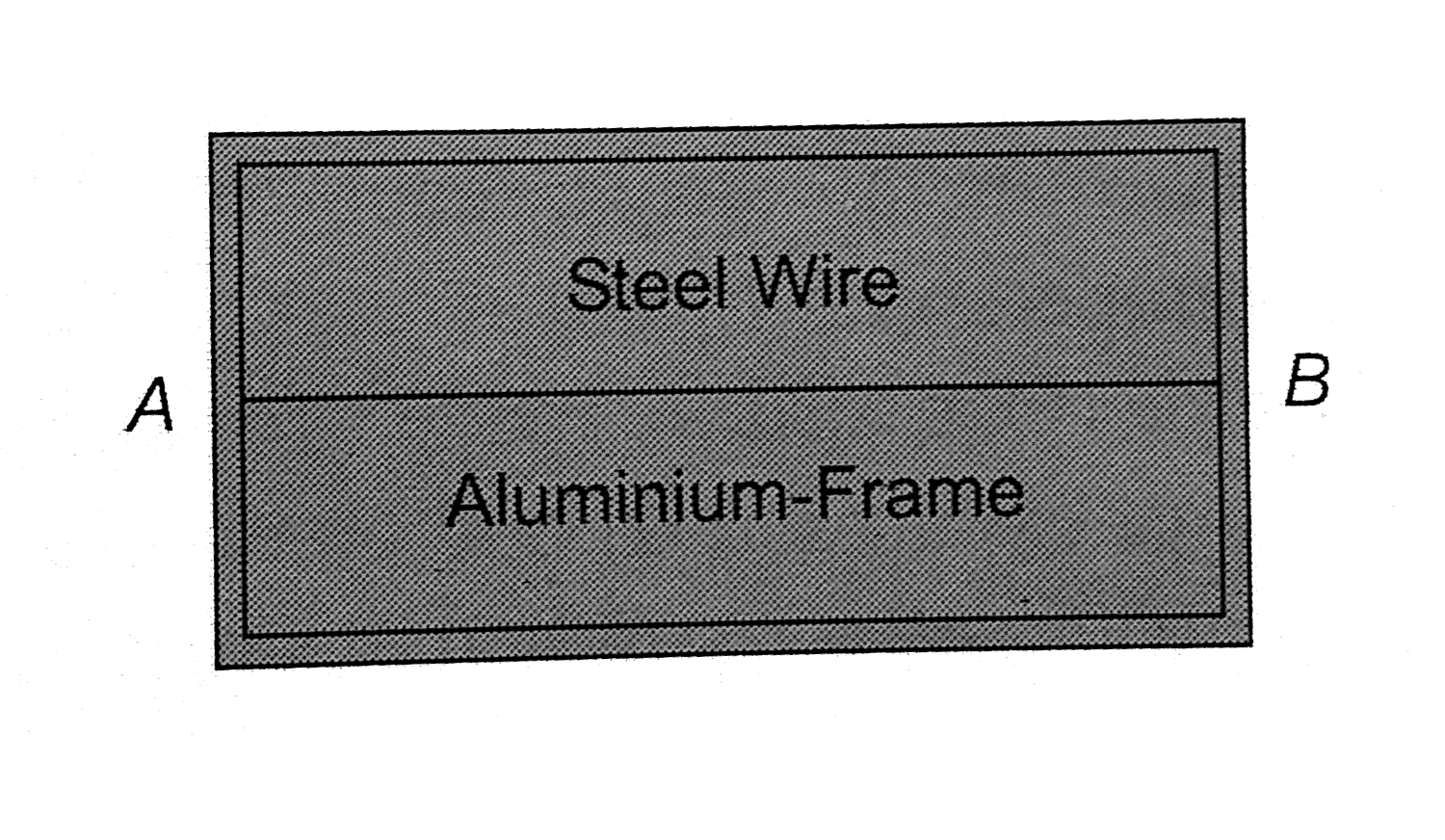The coefficient of apparent expansion of mercury in a glass vessel is and in a steel vessel is . If for steel is , then that of glass is
The correct Answer is:A
Step by step video, text & image solution for The coefficient of apparent expansion of mercury in a glass vessel is 153xx10^(-6)//^(@)C and in a steel vessel is 114xx10^(-6)//^(@)C. If alpha for steel is 12xx10^(-6)//^(@)C, then that of glass is by Physics experts to help you in doubts & scoring excellent marks in Class 11 exams.
Updated on:21/07/2023Topper's Solved these Questions
- THERMOMETRY, THERMAL EXPANSION AND CALORIMETRY BOOK - ERRORLESS CHAPTER - THERMOMETRY, THERMAL EXPANSION AND CALORIMETRY EXERCISE - Graphical Questions
14 Videos
- THERMOMETRY, THERMAL EXPANSION AND CALORIMETRY BOOK - ERRORLESS CHAPTER - THERMOMETRY, THERMAL EXPANSION AND CALORIMETRY EXERCISE - Assertion & Reason
14 Videos
- THERMOMETRY, THERMAL EXPANSION AND CALORIMETRY BOOK - ERRORLESS CHAPTER - THERMOMETRY, THERMAL EXPANSION AND CALORIMETRY EXERCISE - Calorimetery
82 Videos
- THERMODYNAMICSBOOK - ERRORLESS CHAPTER - THERMODYNAMICSEXERCISE - All Questions
304 Videos
- TRANSMISSION OF HEATBOOK - ERRORLESS CHAPTER - TRANSMISSION OF HEATEXERCISE - ET Self Evaluation Test
23 Videos
Similar Questions
A non-isotropic solid metal cube has coefficients of linear expansion as 5×105/∘C along the x - axis and 5×10−6/∘C along the y - axis and 15×106/∘C along Z axis . If the coefficient of volume expansion of the solid is C×10−6/∘C then the value of C is ____.
View SolutionA steel wire AB of length 85cm at 10∘C is fixed rigidly at points A and B in an aluminium frame as shown. If the temperature of the system is raised to 110∘C , what extra stress will be produced in the wire relative to aluminium frame. Assume that coefficient of linear expansion for aluminium and steel are 23×10−6/∘C and 11×10−6/∘C respectively and Young's moduls for steel is 2×1011 pa.

View Solution
Knowledge Check
The coefficient of apparent expansion of mercury in a glass vessel is 153×10−6/∘C and in a steel vessel is 144×10−6/∘C. If α for steel is 12×10−6/∘C then, that of glass is
A9×10−6/∘CB6×10−6/∘CC36×10−6/∘CD27×10−6/∘CThe coefficient of linear expansion of a metal rod is 12×10−6/0C, its value in per ^(0)F
A203×10−6/0FB154×10−6/0FC21.6×10−6/0FD12×10−6/0FA flask of volume 103 cc is completely filled with mercury at 0∘C The coefficient of cubical expansion of mercury is 180×10−6/∘C and heat of glass is 40×10−6/∘C. If the flask in now placed in boiling water at 100∘C how much mercury will overflow?
A7 ccB14 ccC21 ccD28cc
A steel rod of length 5m is fixed between two support. The coefficient of linear expansion of steel is 12.5×10−6/∘C. Calculate the stress (in 108N/m2) in the rod for an increase in temperature of 40∘C. Young's modulus for steel is 2×1011Nm−2
View SolutionWhen a liquid is heated in a glass vessel, its coefficient of apparent expension is 1.03×10−3/∘C. When the same liquid is heated in a copper vessel, its coefficient of apparent expansion is 1.006×10−3/∘C. If the coefficient of linear expension of copper is 17×10−6/∘C, then the coefficient of linear expansion of glass
View SolutionCoefficient of apparent expansions of mercury is 0.18×10−3/0C. If the density of mercury at 00C is 13.6g/cc its density at 473K will be
View SolutionA glass flask of volume 1 litre is fully filled with mercury at 0∘C. Both the flask and mercury are now heated to 100∘C. If the coefficient of volume expansion of mercury is 1.82×10−4/∘C, volume coefficient of linear expansion of glass is 10×10−6/∘C, the amount of mercury which overflows is
View SolutionThe coefficient of real expansion of liquid is 7×10−4/0C. The co efficient of linear ex/pansion of the vessel is 1×10−5/0C. The coefficient of apparent expansion of the liquid is
View Solution
